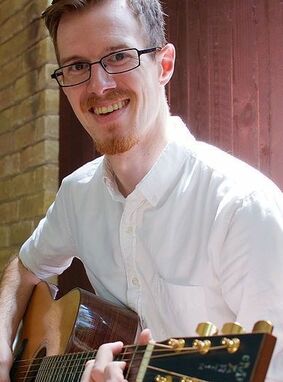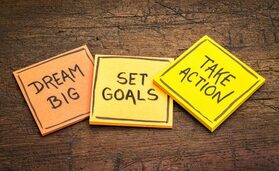|
-Stathia Orwig It’s the end of January 2019, and I’m taking a little time to reflect on 2018. 2018 was a great year for MSS. We got a new studio, built up some classes, and added teachers to our MSS team! To date, we have 135 active students. At this time last year, we had 80. That’s unbelievable!! Last year we had 4 teachers and now we have 8. Those numbers are looking great, but since I am always trying to improve and be better, I’m setting up my goals for 2019.
Our Goals for 2019:
Bring on 2019! We are ready to continue working hard!! Thanks to our MSS families and student for helping us be so successful!
0 Comments
 Q: Tell us about how you first became involved in music. A: I started piano lessons as a young kid, probably at around 6 or 7. I picked up guitar and singing for my school/church worship team when I was 10 and have consistently been involved in worship music even into my career. Q: Is anyone else in your family a musician? A: No, actually! They’re all engineers. My brother-in-law plays French horn in the Amarillo symphony and is a co-owner of Houghton Horns in Coppell, but my immediate family is not particularly musical. Q: Tell us more about your music education/background. A: I was self taught on the guitar for 15 years. I had my first professional lesson when I was 25 and it completely impacted my feelings on the instrument and my capabilities. I studied under Noel Johnston, who is currently a professor of jazz guitar at UNT. Since then, I have chased every scrap of knowledge I can from successful online educators to local jam sessions and open mics, eventually to paid gigs that I learned from on the job. Q: Did you have any influential teachers/professors who guided you towards becoming a professional musician? A: When I was in high school, the Spanish teacher at Richardson HS was Mr. Wing, and I believe he still teaches there. His room on Tuesdays at lunch time was always a jam session, so I would bring my guitar and play. I was terrible, but he was always patient to play with us and let music be a part of our day. I never took a class in Spanish, but he gave me a taste for how impactful music is in community (and how important a patient teacher is). I have always grown as a musician primarily because friends and mentors share music with me. Q: What is your personal teaching philosophy? A: You can never do something fast that you can’t do slowly. Learning music develops daily over time, and practice should always focus on succeeding in small ways before moving on to bigger ones. Q: What is your favorite part about being a teacher? A: Cranking up the distortion on my amp so the piano teachers know guitar is vastly superior. More seriously, I love that guitar is a versatile instrument adaptable to any style. My students are all individuals and each one of them develops an interest in completely different music, often teaching me something new. I have worked with some of the same students long term and seen them use music in their own lives as they are exposed to a variety of influences. I cannot overstate how valuable it is to watch them learn to love music outside of class, with their own families and friends involved. Q: What are some of the skills that you hope our students will learn from you? A: I prefer to learn music by ear, so that just by listening to a song I can jump in and play it. Reading sheet music is valuable, but the guitar is so portable sometimes it’s more convenient just to understand the mechanics of a song by hearing it. This takes practice and hard work, not just “natural talent”, but I certainly hope they learn that it’s entirely worth the effort. I also want them to find and pick songs they want to learn for themselves, and develop a personal musical style, and even perform it! The best concert I could ever go to is one my students perform. Q: What styles of music do you enjoy playing the most? A: I have performed in several folk and jazz groups on acoustic guitar in the last few years, but Top 40s, funk, and rock tend to be what I play professionally. If I had to pick one I would say funk. The band Ripe or Cory Wong will likely be blasting in my room when I’m not teaching. Q: When you are not teaching, what do you like to do in your spare time? A: Honestly, more music! I love performing and rehearsing and practicing. My son, Oliver, keeps me active and also encourages me to cook more to experiment on his weird taste buds. My non-music hobbies include roasting/brewing coffee, playing tabletop games, and disc golf. To see more about James, click here -Meredith Manley
We talk a lot about how many benefits there are for kids to study an instrument: enhancing language and math skills, developing “grit”, and learning to appreciate the arts, just to name a few. But did you know that there are several benefits for adults too? Many adults think they are too old to learn an instrument, but this is absolutely not true. If you are motivated to learn and have the time to practice, then it really is possible! Here are my top 5 reasons why adults should take up an instrument:
Whether you took lessons as a child and want to return, or you’ve never had a single lesson, we know how to get you started. Reach out to us if you have an interest in taking up lessons, and we will match you with a teacher that’s right for you and your musical goals. If you’ve always wanted to learn, you haven’t missed the boat on this rewarding hobby! |
Archives
July 2024
Categories
All
|
|
|
MUSIC SO SIMPLE
|


 RSS Feed
RSS Feed